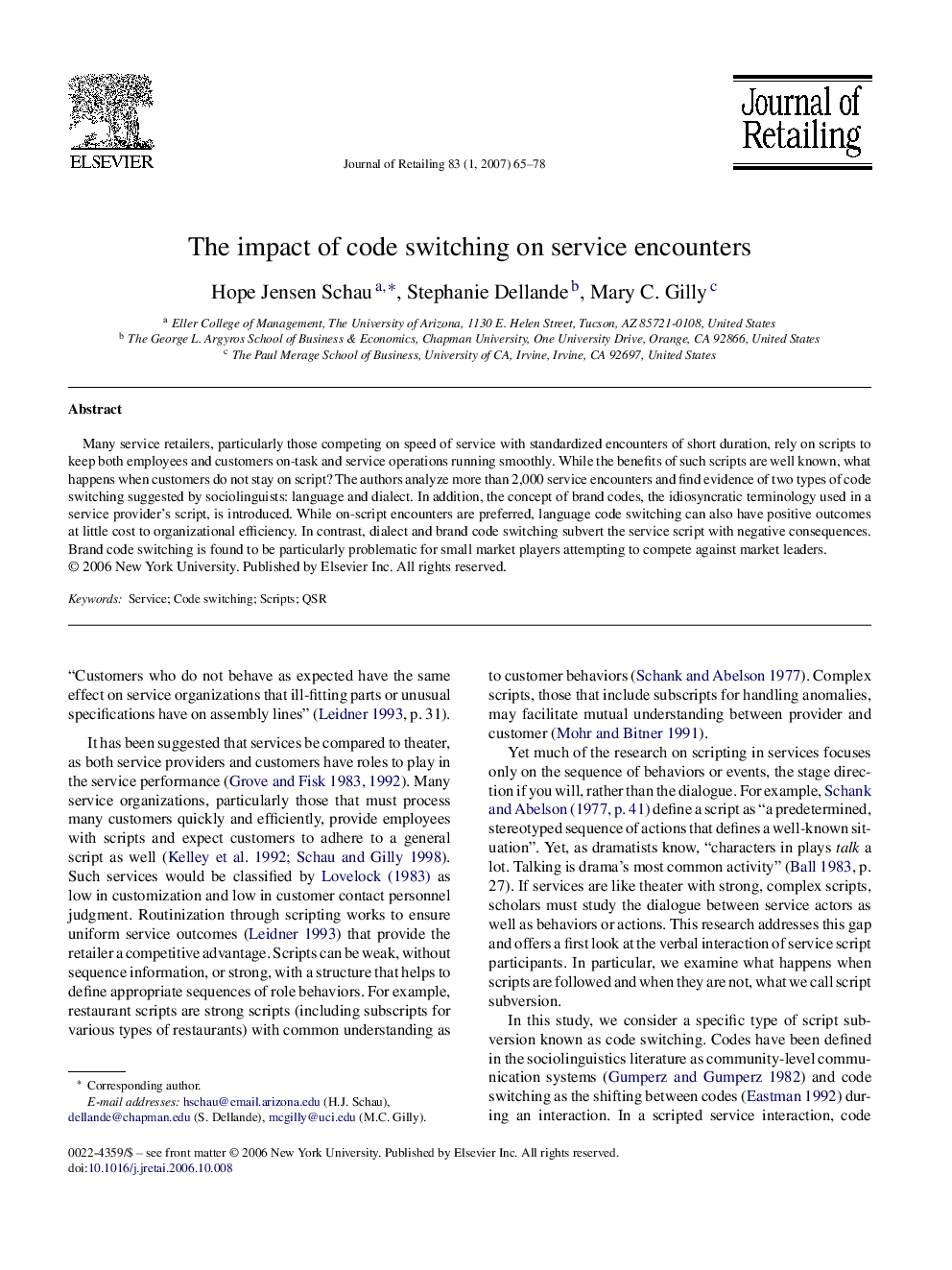| Article ID | Journal | Published Year | Pages | File Type |
|---|---|---|---|---|
| 886530 | Journal of Retailing | 2007 | 14 Pages |
Many service retailers, particularly those competing on speed of service with standardized encounters of short duration, rely on scripts to keep both employees and customers on-task and service operations running smoothly. While the benefits of such scripts are well known, what happens when customers do not stay on script? The authors analyze more than 2,000 service encounters and find evidence of two types of code switching suggested by sociolinguists: language and dialect. In addition, the concept of brand codes, the idiosyncratic terminology used in a service provider's script, is introduced. While on-script encounters are preferred, language code switching can also have positive outcomes at little cost to organizational efficiency. In contrast, dialect and brand code switching subvert the service script with negative consequences. Brand code switching is found to be particularly problematic for small market players attempting to compete against market leaders.
